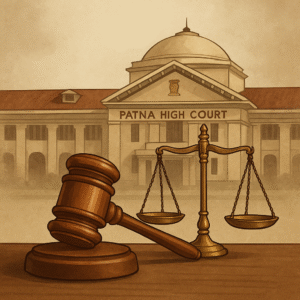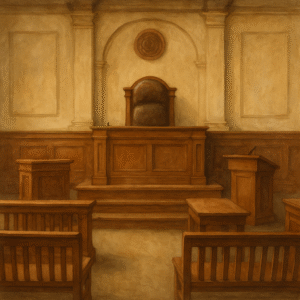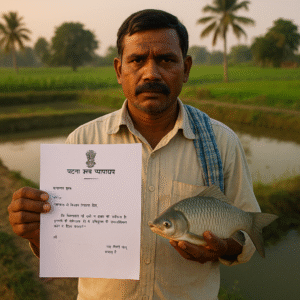Simplified Explanation of the Judgment
In a significant development, the Patna High Court has provided crucial relief to a company engaged in the export of goods without payment of integrated tax. The petitioner had claimed a refund of Input Tax Credit (ITC) under the Goods and Services Tax (GST) regime, which was initially denied by the authorities. The petitioner challenged both the refund rejection and the subsequent appellate order before the High Court.
The petitioner filed three connected writ petitions, all centered around the denial of refund by the GST department and the confirmation of this rejection by the appellate authority. The main grievance was that the refund was denied based on materials not mentioned in the original show-cause notice, and the petitioner was not given an opportunity to respond to those materials. The High Court agreed with the petitioner and held that such an approach violated principles of natural justice.
The court noted that the company had submitted all required documentation in response to the show-cause notice, except for the agreement between the petitioner and foreign buyers. However, the court observed that having such an agreement is not a mandatory condition for claiming ITC refunds on exports. Importantly, the tax department based its rejection on additional information that was not part of the original show-cause notice, nor was the petitioner given a fair chance to respond to it.
The appellate authority had also affirmed the refund rejection without adequately addressing these procedural flaws. The High Court found this to be unacceptable and set aside both the refund rejection and the appellate order.
The court invoked established legal principles laid down by the Hon’ble Supreme Court in Oryx Fisheries Pvt. Ltd. v. Union of India & Ors., (2010) 13 SCC 427, emphasizing the need for transparency and proper reasoning in quasi-judicial decisions. It reiterated that any administrative or quasi-judicial decision that adversely affects a party must provide adequate reasons and offer the party a chance to respond.
In its conclusion, the High Court converted the refund rejection order into a fresh show-cause notice and directed the Joint Commissioner of State Tax, Kishanganj, to give the petitioner eight weeks to respond. Thereafter, a detailed speaking order must be passed considering the petitioner’s response and in line with the principles of natural justice.
This judgment sets an important precedent in ensuring procedural fairness in GST refund processes.
Significance or Implication of the Judgment
This ruling has far-reaching implications for businesses in Bihar and beyond that are engaged in exports. It reiterates the importance of procedural fairness under GST law and provides clarity on what constitutes mandatory documentation in refund claims.
For government authorities, this case serves as a reminder to ensure transparency and adherence to due process. Tax officers exercising quasi-judicial functions must confine their decisions to the scope of the show-cause notice and must provide affected parties a fair chance to respond to any adverse material.
For the general public and especially for exporters, this judgment ensures that refunds cannot be denied on arbitrary grounds or without proper communication of reasons. It upholds the principles of natural justice and strengthens the credibility of the GST adjudication process.
Legal Issue(s) Decided and the Court’s Decision with Reasoning
- Whether the GST refund rejection can include new grounds not mentioned in the original show-cause notice?
- Court’s Decision: No. The Court held that refund orders must be based strictly on the grounds stated in the show-cause notice. Any additional material must be shared with the affected party for a response.
- Is an agreement between exporter and foreign buyer mandatory for claiming ITC refund under GST?
- Court’s Decision: No. The Court noted that such agreements are not a mandatory requirement.
- Whether the appellate authority erred by not addressing the procedural violations?
- Court’s Decision: Yes. The appellate authority failed to correct the original procedural flaws, and hence, its order was also set aside.
- What remedy was granted to the petitioner?
- Court’s Decision: The refund rejection order was treated as a fresh show-cause notice. The petitioner has eight weeks to respond, after which a new detailed order must be issued.
Judgments Relied Upon or Cited by Court (with citations)
- Oryx Fisheries Pvt. Ltd. v. Union of India & Ors., (2010) 13 SCC 427
Case Title
Vaishnodevi Advisory Private Limited v. State of Bihar & Others
Case Number
CWJC No. 19159 of 2024 (with CWJC Nos. 18690 & 18761 of 2024)
Coram and Names of Judges
Hon’ble Mr. Justice P. B. Bajanthri
Hon’ble Mr. Justice Alok Kumar Sinha
Names of Advocates and Who They Appeared For
For the Petitioner:
- Mr. Vinay Shraff, Sr. Advocate
- Mr. Puneet Siddhartha, Advocate
- Mr. Amit Kr. Singh
- Mr. Aryan Sinha
- Mr. Amit Kumar Singh
- Md. Zeeshan Khan
For the Respondents:
- Mr. Standing Counsel (11)
Link to Judgment
c06598fa-d96a-499c-a41a-632ed66b918c.pdf
If you found this explanation helpful and wish to stay informed about how legal developments may affect your rights in Bihar, you may consider following Samvida Law Associates for more updates.








